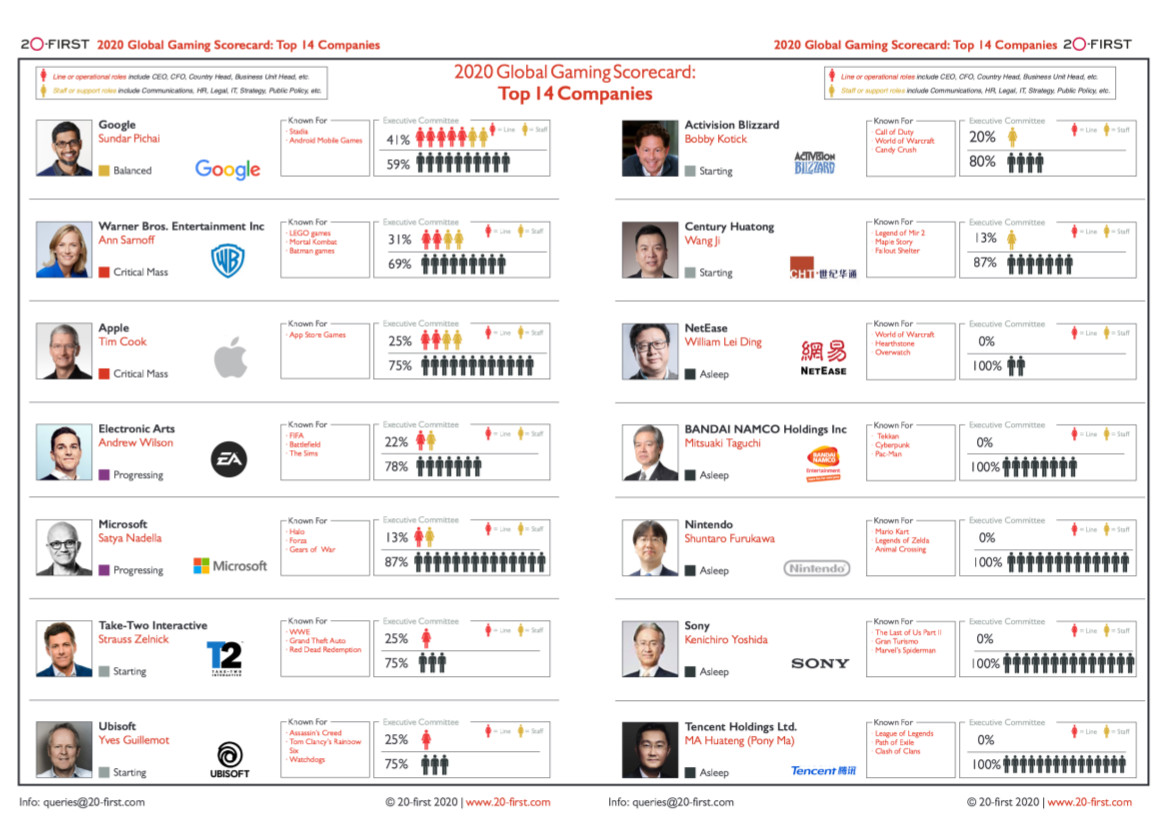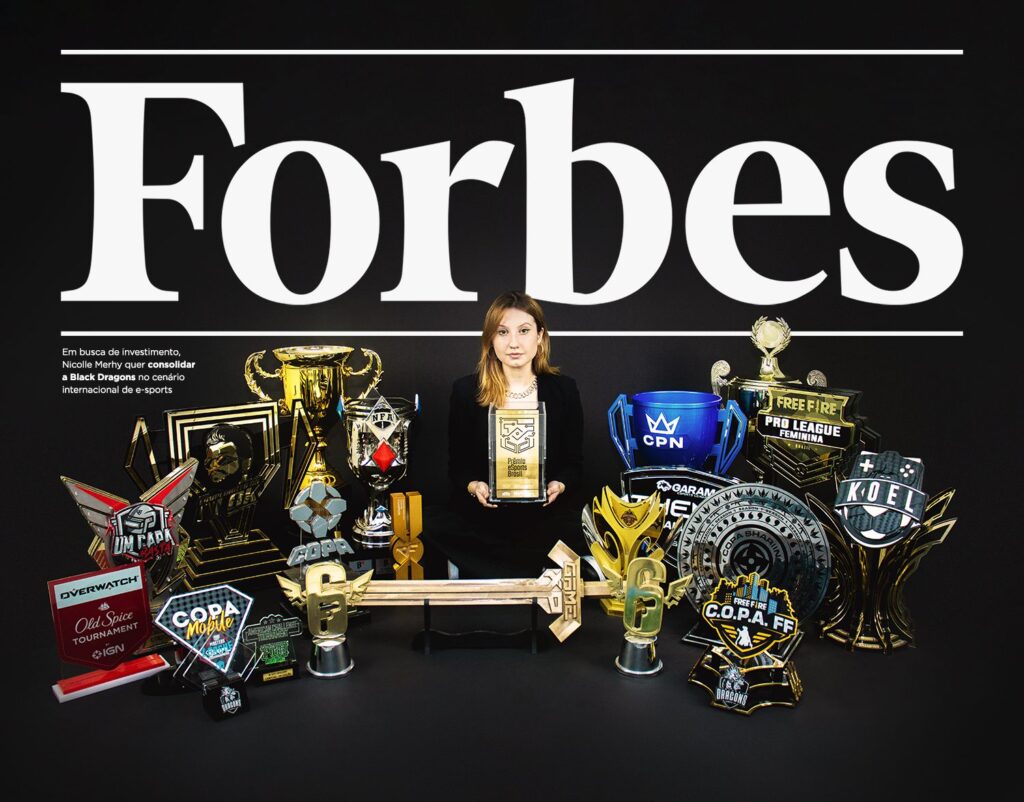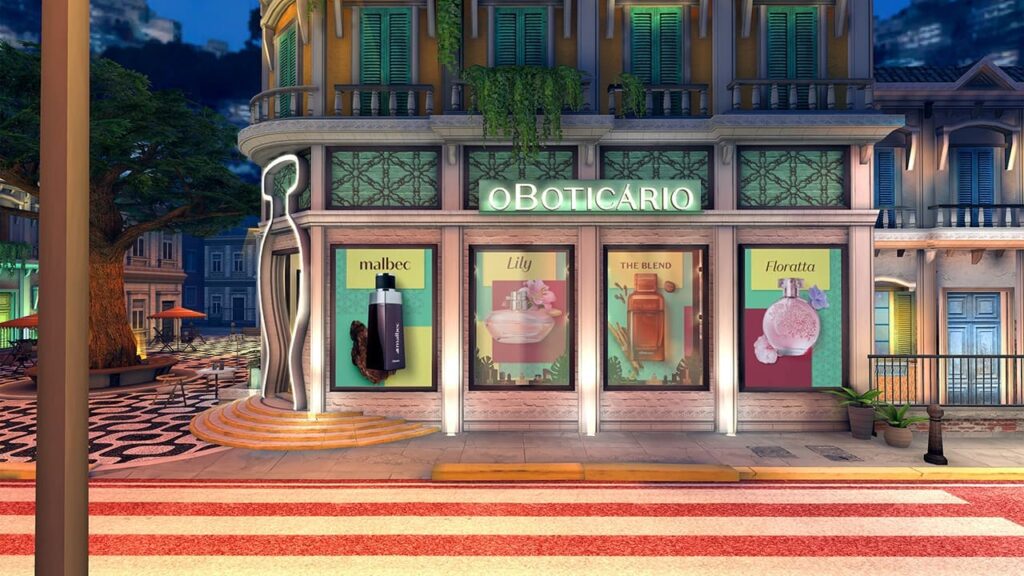Think of a gamer. There is a great chance that most of us won’t picture female gamers. It’s the 21st century, and although the traditional male gamer image has resisted time, the stereotype is not just outdated but far from accurate. Breaking the gender bias one play at a time, the young esports professional Nicolle Merhy is on a journey to redefine the game scene.
Featured in Forbes Under 30, CEO of Black Dragons, and Nike’s first Brazilian esports ambassador, Merhy spoke about her saga to conquer space in an arena dominated by male players. Moreover, she emphasized how diversity and inclusion in the workplace are more than a seasonal agenda; it’s an opportunity for companies to address the demands of new consumers and scale their business. “I was introduced to the game scene very young by my father, who was a computer technician at the time. It was our bond; we always played together. He never said to me that games weren’t made for women. It was the opposite; he gave me insider tips to play Quake (a first-person shooter game). And from that time on, I never stopped playing”.
While female gamers account for 46% of the global game audience, they are still underrepresented in the industry, a market already outperforming the music streaming and movie industries combined.
The majority of professional players, as well as game developers and high-level executives, are white males, who play, design, and develop storylines for games tailored to only half of their global audience. Taking a closer look into the top 14 companies in the industry, the 2020 Global Gender Balance Scorecard shows how male dominance is consistent in the industry worldwide; of 144 executives, 121 are men, while 23 are women.

A Game Changer
Data can be discouraging. More so when the lower numbers are read as an impediment rather than an opportunity. Being the only female gamer in a pool of male players at an early age, Nicolle Merhy was never threatened by the gender imbalance and overall inequality that sorrows almost all industries. Instead, she saw it as a chance to challenge reality and bring about the new. “I was lucky enough to have my father as a tutor. He helped me develop the skills to become competitive. That changed everything because I learned how to be a good gamer regardless of my gender”, Merhy recalls.
As an outlier, she knew the odds weren’t in her favor. Only 5% of competitive esports players are women (Women in Games); amongst the top 100 highest paid streamers, only one identifies as a female gamer. Yet, Countless hours playing for fun, training, and strategizing her way to the top paid off. In 2015, when the game Rainbow Six: Siege was released, Merhy decided to compete professionally in esports championships, consolidating her name in the game scene. She played in the main tournament for over a year as the only female athlete holder; to date, her accomplishment remains unchallenged in Brazilian territory.

What started as a hobby turned into a successful career also outside of the screens. The 24-year-old entrepreneur became an active advocate for more diversity and inclusion in the game industry, demanding better policies from regulators to prevent online harassment. Although other segments of society have advanced in creating mechanisms to inhibit harassment in the workplace, female gamers are left in the dark. Abuse, online discrimination, and cyberbullying are part of the reality of the majority of female players. With few options to protect themselves from male attacks and unsolicited messages, most female gamers adopt non-binary nicknames or mute their voices while playing.
Proving that the issue is not a small matter, the non-profit Wonder Women Tech created My Game My Name in partnership with Women Up Games. The social awareness campaign invited male gamers to adopt feminine nicknames during game transmissions to experience how sexism plays against women. “It takes time to promote change on a bigger scale. You will have to work three or four times harder than your competition to prove that you deserve your space. You will have to play with the cards you have at hand”, says Merhy, the campaign ambassador.
Although the initiative fell by the wayside not long after its launch, Nicolle Merhy remains tirelessly active in advocating for more women in the professional game scene. In a new partnership with Next, a digital bank that is the brainchild of Bradesco, Brazil’s second-largest private bank, and the Collective Valkirias, Merhy started a circuit of competitions designed only for female gamers. Termed “Ela Faz o Game” (or She Makes the Game, in free translation), the initiative is divided into three main circuits: tournaments, workshops, and lectures with pro females player, streamers, and commentators. Aside from having the opportunity of winning up to two thousand dollars (R$ 10,000 thousand Brazilian Reais), competitors will have free of charge legal, nutritional, and psychological assistance throughout the tournaments. The goal is to create more opportunities for women in professional arenas and provide them with a support network to thrive.
Female Gamers: A business perspective
The game industry will keep on growing both in engagement and revenue. With the growing access to technology, the expectation is that more diversity will be seen behind the screens.
However, when female gamers and other minority groups demand more diversity and inclusion, they are reminding businesses that they are consumers whose needs must be addressed if companies aim to grow. The lack of representation in the gaming industry is not just outdated; it’s hurting businesses. A survey conducted in collaboration with Intel and Newzoo reports that “47% of gamers (age 10 to 65) won’t play games they feel are not made for them”. Publishers and developers are missing an opportunity to engage with a broader range of consumers.
Furthermore, in the past two years, the game scene proved its potential as a platform for other segments to connect with the gamer audience. When people were forced into lockdowns, businesses were hit hard. Compelled to reinvent themselves, companies saw an opportunity to intersect their businesses with the game world.
As an example of companies striving to engage with new audiences, in 2021, Boticário, one of the world’s largest perfumery and cosmetics companies, announced its first in-game marketing activation. Created by AlmapBBDO in partnership with BBL, the campaign inserted a Boticário store in the epicenter of the virtual reality game Avakin Life. There, players could use game points (BotiCoins) to purchase beauty products delivered later to their physical address. In over a month, the virtual store had 9 million visits. “The digital universe grew immensely during the pandemic. I witnessed a shift in how brands perceived the game scene. When all events were canceled, except virtual, companies were forced to transform their mindset to survive”, claims Nicolle Merhy.

During an interview for Fast Company Brazil, Renata Gomide, Boticário’s Brand and Communications Director, emphasized how the company strives to connect its products with a more diverse audience, leveling up its game. Currently, over 72% of the Brazilian population plays some type of game, which means that there is an immense diversity among the gamer profile. People of all ages, genders and personal interests await companies to spot their demands.
Again, needless to say, this isn’t about seizing an opportunity for a quick profit. The goal is to establish honest relationships with ever-evolving audiences. Consumers are wise, and the lack of a genuine intention can certainly backfire even with well-established companies like Coca-Cola. In 2021, during her speech for the Marketing Network Brazil (MNB), Merhy used the beverage company as an example of how not to conduct campaigns. Coca-Cola created a mega-production revolving around the game universe without understanding the audience.
What begins as a force battle between characters and players turns into an unrealistic fraternal embrace in the end. The campaign wanted to reinforce the brand’s purpose of joy and global union within the concept of “One Coke Away From Each Other – Real Magic.” Unfortunately, the brand forgot that for game players, the adrenaline of the competition is precisely what moves players. As expected, the campaign was heavily criticized by the gamer community, which understood it as an attempt to unsuccessfully communicate with the gaming audience.
After witnessing companies struggling to create legit connections, Nicolle Merhy decided to expand her reach as a game consultant. She took on the role of a brand ambassador for Acer (hardware and electronics), Ubisoft (game development), Nike (sports apparel), Corsair (hardware and software), Ambev (beverage), Next (bank), and Boticário (beauty products). Shining a light on the right path to success, Merhy is fighting the battle on and off-screen, teaching top-level executives how to play well in the new market game.


